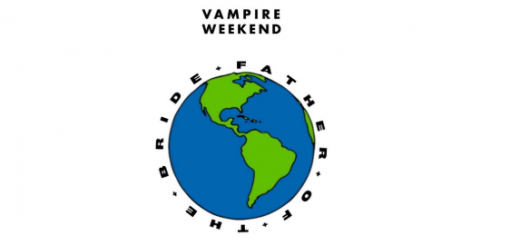Horchata by Vampire Weekend Lyrics Meaning – Unraveling the Layers of Nostalgia and Change
Lyrics
I’d look psychotic in a balaclava
Winter’s cold is too much to handle
Pincher crabs that pinch at your sandals
In December, drinking horchata
Look down your glasses at that Aranciata
With lips and teeth to ask how my day went
Boots and fists to pound on the pavement
Here comes a feeling you thought you’d forgotten
Chairs to sit and sidewalks to walk on
You’d remember drinking horchata
You’d still enjoy it with your foot on Masada
Winter’s cold is too much to handle
Pincher crabs that pinch at your sandals
Here comes a feeling you thought you’d forgotten
Chairs to sit and sidewalks to walk on
Oh, you had it but oh, no, you lost it
Looking back, you shouldn’t have fought it
In December, drinking horchata
I’d look psychotic in a balaclava
Winter’s cold is too much to handle
Pincher crabs that pinch at your sandals
Years go by and hearts start to harden
Those palms and firs that grew in your garden
Are falling down and nearing the rosebeds
The roots are shooting up through the tool shed
Those lips and teeth that asked how my day went
Are shouting up through cracks in the pavement
Here comes a feeling you thought you’d forgotten
Chairs to sit and sidewalks to walk on
Oh, you had it but oh, no, you lost it
You understood so you shouldn’t have fought it
Here comes a feeling you thought you’d forgotten
Chairs to sit and sidewalks to walk on
Here comes a feeling you thought you’d forgotten
Chairs to sit and sidewalks to walk on
Nestled within the eclectic melodies and preppy, indie-pop aesthetics of Vampire Weekend’s oeuvre lies ‘Horchata’, a track as enigmatic as it is catchy. The song, appearing on their sophomore album ‘Contra’, melds cultural references, personal introspection, and a whisper of seasonal affective nostalgia to create a composition that defies simplistic interpretation.
While the song’s perky beat and esoteric lyrics might initially mask its depth, a closer analysis reveals ‘Horchata’ as more than just an autumnal ode to an almond rice milk beverage. It’s a vessel for exploring themes of memory, the inexorable march of time, and the bittersweetness of reflecting on the past.
Thawing the Winter Blues with a Spice of Irony
At first glance, ‘In December, drinking horchata’ serves as a quirky, warm antidote to ‘winter’s cold.’ It’s a classic Vampire Weekend juxtaposition of the highbrow with colloquial charm. Yet, underneath this whimsical surface, the horchata acts as a metaphor for seeking comfort in traditions amid the inevitable chill of change. The quirky image of someone ‘looking psychotic in a balaclava’ cuts through the comfort, suggesting an internal battle between embracing warmth and confronting the often arduous nature of change.
This contrast is further developed through the mention of ‘pincher crabs that pinch at your sandals,’ a vivid metaphor for the little agitations that persist despite our attempts to find solace. Whether it’s the literal discomfort of wintertime or the metaphorical stings of life’s unpredictable tribulations, the band captures the essence of human resilience in the face of minor, yet constant, annoyances.
Sipping on Nostalgia: A Toast to the Forgotten Moments
The refrain ‘Here comes a feeling you thought you’d forgotten’ is more than an earworm; it’s a testament to the haunting nature of nostalgia. In this context, ‘Horchata’ serves as a Proustian madeleine, each sip a gateway to memories once shelved and dusty. The lyrics navigate the complex terrain of remembering and forgetting, with the repeated verse acting as a signpost for the waves of reminiscences that can wash over us when triggered by the simplest of pleasures.
It’s a poignant reminder that sensory experiences, like the taste of a spiced beverage, can be powerful conduits to the past. Vampire Weekend harnesses this emotive pull, crafting a soundscape that captures the often-fleeting joy of recollection before it slips away, outshone by the demands of the present.
Unveiling the Song’s Hidden Meaning
There’s a deliberate obscurity to the song’s lyrics that invites listeners to peel back the layers of meaning. The mention of ‘Masada,’ for instance, is evocative not only of exotic imagery but also of historical resilience and the endurance of culture through adversity. By coupling this with the act of ‘drinking horchata,’ the band weaves a tapestry that connects personal history with a broader human experience.
The song invites listeners to interpret their ‘hardened hearts’ and the ‘palms and firs that grew in your garden,’ perhaps as metaphors for personal growth and decay. The lyrical garden is a cyclic thing, subject to seasons of growth and decay, much like human experiences and relationships. The intrusion of the natural through ‘roots…shooting up through the tool shed’ is a clever nod to how external realities often disrupt our internal landscapes.
Memorable Lines Etched in Pop Culture
‘Years go by and hearts start to harden’ – this poignant line encapsulates a universal truth about the aging process, change, and the hardening of emotions that often accompanies adulthood. It resonates with a generation that has grown alongside Vampire Weekend, echoing the painful realization that with time comes a certain emotional fortification.
‘You’d still enjoy it with your foot on Masada’ – this line stands out as an intriguing historical and cultural reference that layers the song with complexity. It alludes to the idea that, irrespective of where life takes us, there are core experiences and memories that remain immutable, an anchor in the ever-shifting sands of time.
The Beat Goes On: Rhythm and Melancholia
While the lyrics dance with introspective and pensive themes, they are set to a contrastingly upbeat rhythm. This dichotomy speaks to Vampire Weekend’s ability to blend mirth with melancholy. The track’s buoyant tempo counterpoints its underlying wistfulness, creating a dynamic tension that propels the song forward, forcing listeners into a state of reflective toe-tapping.
The juxtaposition also serves as a metaphor for life’s dualities. We move to the beat of existence, often finding ourselves swaying between joy and sadness, nostalgia and novelty. ‘Horchata’ is a musical reminder that complexity can be cloaked in simplicity, and that the most meaningful insights often arise from an alchemy of disparate elements.








